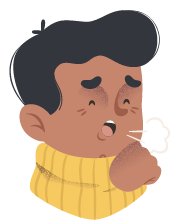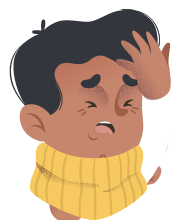High Fever
A high grade fever happens when your body temperature is 103°F (39.4°C) or above. Most fevers usually go away by themselves after 1 to 3 days. A persistent or recurrent fever may last or keep coming back for up to 14 days. A fever that lasts longer than normal may be serious even if it is only a slight fever.






